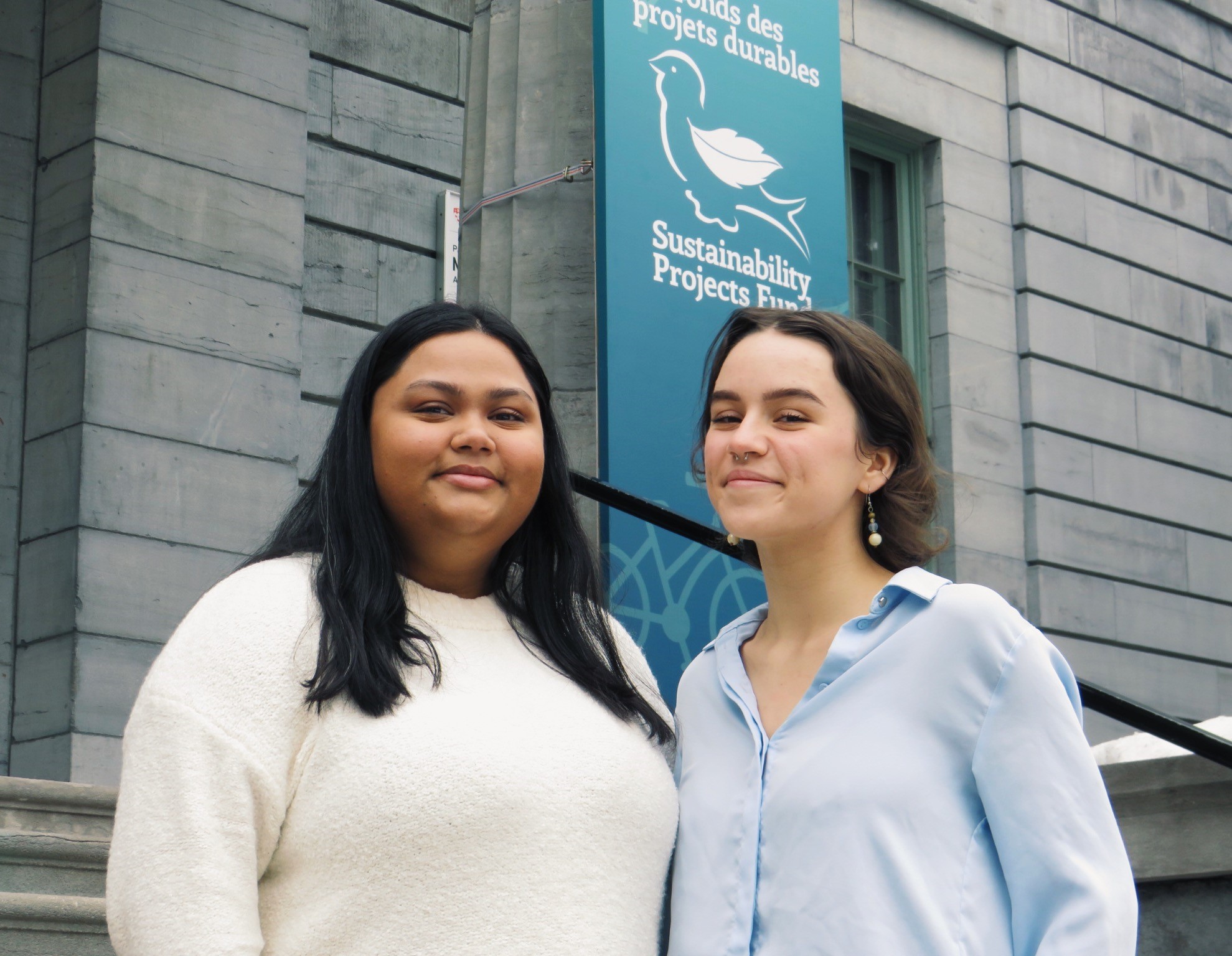As summer approaches, another cohort of McGillians prepare to make their way across the convocation stage, and thousands of students who have been involved in sustainability projects on campus head out into the world.
The energy and passion of students is a driving force behind sustainable change on campus, but the tradeoff is how transient that force can be. High turnover comes with the territory when working with students. But as a graduating student myself, I worry about how this can hinder the, ahem, sustainability of sustainable projects and initiatives on campus. It’s an evergreen problem that arises with the blossoms every year when another senior class steps through the Roddick Gates for the last time, taking many relationships and lessons learned with them.
The challenge of losing this “institutional memory” has been on my mind a lot lately, as I step away from my own involvement in sustainability at McGill, so I decided to ask other community members what they are doing to maintain momentum as older students leave and new ones arrive.
Making the most of the time that we have
There isn’t a catch-all solution for this issue, but different student leaders recommend a few tricks.
“I think the best way to keep continuity and preserve sustainability efforts on campus is by having a really strong network of new and old community members, rather than grouping ourselves by age or stage of life,” said graduating PGSS Environment Commissioner Charlotte Aubrac.

One of easiest ways to pass the baton between generations is with an exit report, but often the months or years of our involvement blur together, and that learned experience can be tough to capture in a single write-up. Some groups have addressed this by requiring positions and committees to report on their activities multiple times throughout the academic year. “And thorough meeting minutes never hurt anyone either,” Aubrac added with a chuckle.
Another tactic for dispersing knowledge and efforts across the McGill community is to have cross-appointed students, like SSMU Sustainability Co-Commissioner Annelies Koch-Schulte, who also volunteered as a Sustainability Ambassador with the Office of Sustainability this year. By working in two spaces, Koch-Schulte has been able to share ideas and encourage collaborations that might not have otherwise been considered.
“My ability to bounce between the two organizations has been really valuable so far,” she commented. “I’ve been able to disperse all of this knowledge, information, and resources that can get stuck in different spaces on campus and not be shared.”
With targets like becoming zero-waste by 2035 and achieving carbon neutrality by 2040, McGill needs student activism, but the timelines of these targets mean continuity must come from partnerships with staff and faculty. This is where leaning on connections with administrative units at McGill can help.
Playing the long game… together
“There was a speaker at COP15 this year who said, ‘This is your moment in the sunshine, this is the little window you have to create change, so take advantage of it,’” said Koch-Schulte. “I think students really feel that every single day. We know that we’re not here for a long time, so we want to do our best in the time that we do have.”
When it comes to making impactful change on campus, however, not every goal can be achieved in a three- or four-year window. Since it can be difficult to stay motivated when you know you won’t see a project through to completion, I have found that participating in projects of different scales helps. This allows you to savour some victories and pass the baton for challenges that require more time.
“[As part of a student society], it’s hard to keep priorities and projects going from year to year, whereas staff don’t really have that issue because they hold permanent positions,” said Shuchita Das, a graduating student who served alongside Koch-Schulte as SSMU Sustainability Co-Commissioner. “It’s a huge asset to have a place like the Office of Sustainability, where institutional knowledge can build up over time so students can jump right in.”
As students, I think we need to recognize the effort needed for staff to re-connect with us every year, and I’m not alone. “It takes a lot of energy, and it’s an investment to make those connections,” Das added. “But I really encourage the administration to keep taking the time to do this, because it’s so worth it for everyone.”
So, while there are no perfect solutions yet, as I prepare to cross the convocation stage, I can’t wait to see how the projects I leave behind grow and evolve with new changemakers.
Want to make the most of your time at McGill? Apply to the Sustainability Projects Fund to launch your own sustainability initiative on campus.

Thank you Maya for another fresh and thoughtful article! It was great fun and an honour to work alongside you at McGill Sustainability. Happy adventures!